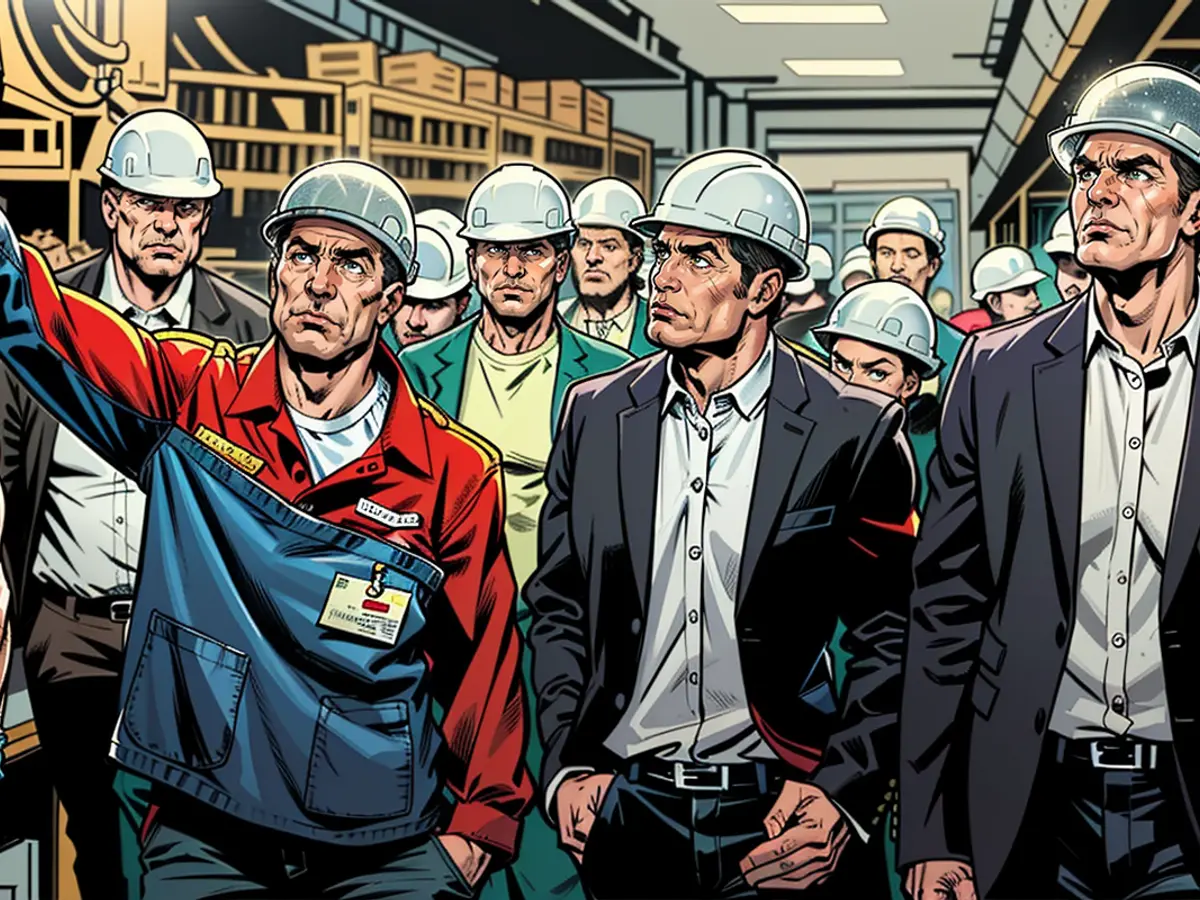Robert Habeck expressionly prefers not to conceal.
The current state of Germany's economy is less than stellar, with numerous issues contributors like an economic slump, soaring energy costs, and labor scarcities. Federal Economics Minister Habeck is actively investigating these matters on-site and proposing potential solutions.
A sprawling factory hall is buzzing with welding work, as the construction of the upcoming cruise ship for Meyer Werft is slated for completion within the next year. Despite a fully-booked order sheet, the shipyard found itself in a financial rut and was salvaged thanks to governmental funding from both the federal and Lower Saxony state.
Federal Minister of Economics Robert Habeck, donning a white helmet, stands at the factory's entrance in Papenburg while touring the company. He emphasizes the importance of the rescue operation for Germany as a whole, claiming that the country still holds a competitive edge in the global cruise shipbuilding market, with few areas remaining untouched by Asian competition. He playfully refers to Lower Saxony's Minister of Economics, Olaf Lies, as being a co-owner. Lies shares an optimistic outlook on the situation.
Sectors "where the heat is at"
However, this optimism is not shared in several sectors of the economy. Business associations describe the sentiment as austere, as companies are hesitant to invest. The reasons for this: recession, exorbitant energy costs, excessive bureaucracy, labor shortages, dissatisfaction with the traffic light coalition.
Following a conversation with small and medium-sized enterprises (SMEs) in Rheine, North Rhine-Westphalia, Habeck admitted that he appreciates being transparent about his "Northwest Tour."
The purpose of this journey is to visit industries deemed "where it's really burning" – giving him direct access to the core issues and working on their resolutions. "It's different when you're on-site – engaging in discussions with employees, management, and trade unions, looking them in the eye, observing the environment, understanding the smells and sensations of the factory floor. A solution has been found for Meyer Werft."
Habeck seeks relief
Although Meyer Werft's predicament has been addressed, there are still formidable challenges at hand. In the morning, Habeck visited Georgsmarienhütte Holding GmbH (GMH), where the conversation centered on exorbitant electricity costs. The steel industry, being one of the largest CO2 emitters, is undergoing a costly transition to hydrogen and green electricity as part of the climate-friendly shift away from coal and natural gas. However, the German steel sector is grappling with a weakened economy, cheap overseas competition, mainly from Asia, and soaring energy costs. In light of this, Habeck advocated for loosening the industrial sector's high network charges and, by extension, electricity prices.
Moreover, state subsidies for network charges have been reduced due to financial constraints, as has state funding for the acquisition of electric vehicles. This resulted in a marked decline in the registration of new electric vehicles, which is partially attributed to the ongoing crisis within the German automotive industry – an essential customer, such as steel manufacturers. For instance, the GMH group depends on 80% of its sales to car manufacturers like Volkswagen and is now actively seeking alternative revenue sources.
There is significant internal unrest at Volkswagen. Europe's foremost automaker has declared that, as part of a cost-saving plan for the Volkswagen core brand, plant closures and layoffs are no longer taboo. This announcement sparks strong backlash from the works council and IG Metall. On Friday, Habeck intends to gather insights into the situation firsthand – by visiting Volkswagen Emden.
I'm not planning to intervene in Volkswagen's internal matters during my visit, focusing instead on understanding the current situation and its impact on the German economy. Despite announcing potential plant closures and layoffs, Volkswagen continues to grapple with numerous challenges, including soaring energy costs and labor shortages.








